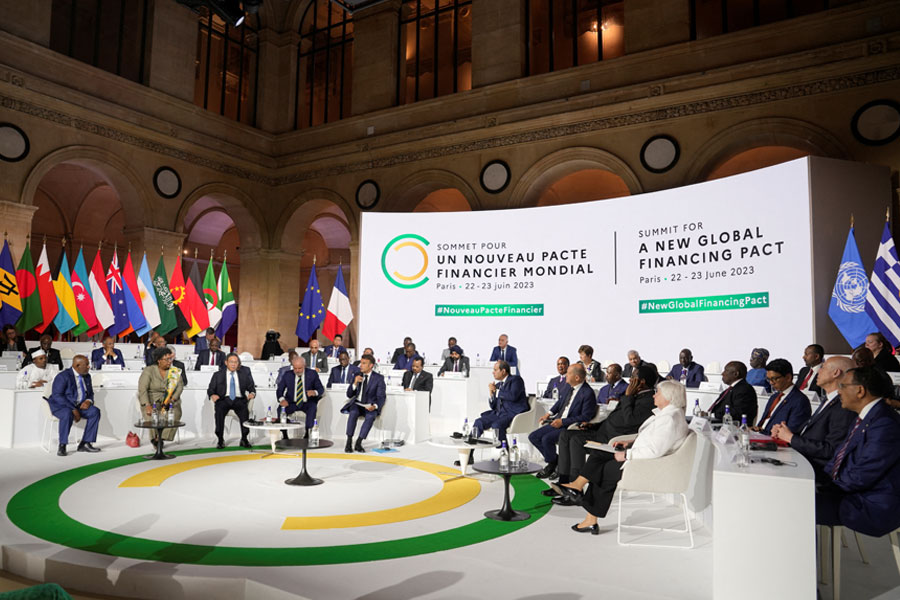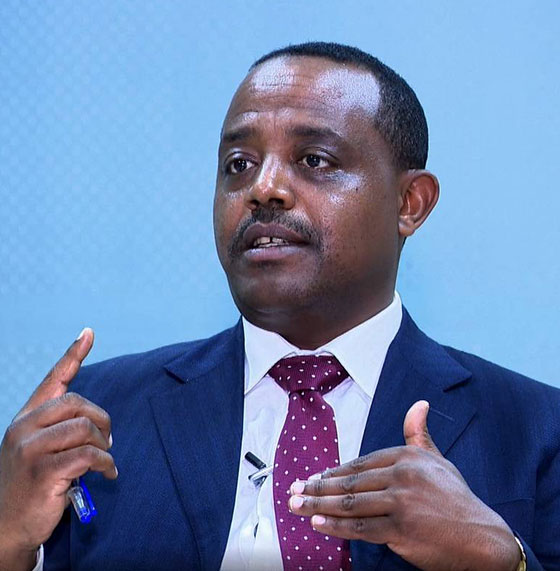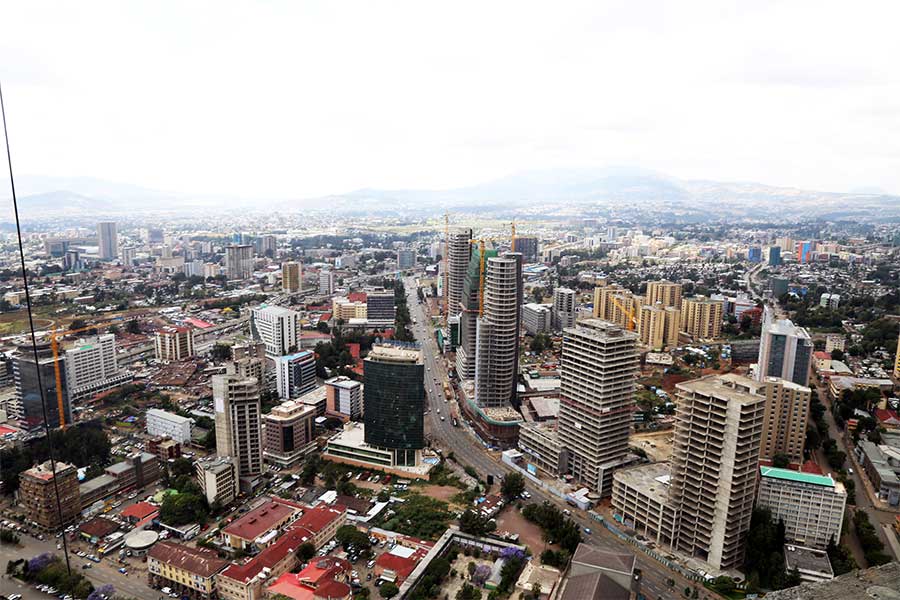
Exclusive Interviews | Jun 24,2023
Jun 29 , 2024
By Bjorn Lomborg
Some of the world's big challenges get a lot of attention. Climate change, war and immigration are constantly in the news and receive large funding from states and private philanthropies. Other problems like tuberculosis and nutrition receive less airtime and awareness, but count among major global priorities, with funding allocated.
Even the aptly named Neglected Tropical Diseases like rabies, river blindness and leprosy, which kill 200,000 people each year in poorer countries, have their programs and attention from the World Health Organization (WHO).
But there is a challenge about which we hear little to nothing. It affects more than a billion people and could be addressed very efficiently. We could reasonably call it the Neglected Enormous Disease. The world has made large inroads in tackling infectious diseases. Two centuries ago, they routinely caused almost half of all deaths, but today, they kill less than 15pc. Instead, half of all deaths are caused by the two biggest killers, cardiovascular disease and cancer.
Cancer causes about 18pc of all deaths, but it is hard and costly to tackle with only modest success rates, which is why most treatment happens in rich countries. The biggest killer of all, which is technically called cardiovascular disease but mainly consists of heart attacks and strokes, kills more than 18 million people each year, making up a third of all global deaths. A big part of the problem is unhealthy diets, physical inactivity, tobacco and alcohol use, which causes obesity and high blood pressure.
While doctors will tell patients to stop smoking, cut down on alcohol and salt, exercise more, and eat fewer calories but more fruit and vegetables, this advice is fairly difficult to follow. Tobacco and alcohol regulation can make this easier, along with reducing salt levels in ready-made meals. But, focusing on high blood pressure is critical to turning around this Neglected Enormous Disease. Incredibly, the indicator of high blood pressure is the single most considerable global death risk, leading to almost 11 million deaths annually, causing 19pc of all fatalities in the world.
As the world's population ages, more people are affected. The number of people living with blood pressure doubled in the past 30 years — to about 1.3 billion people. Because there are no apparent symptoms, almost half do not even know they have it, and four out of five people are not adequately treated.
This combination makes high blood pressure both enormously impactful and surprisingly neglected.
The good news is that treating high blood pressure is incredibly cheap and effective. One or more off-patent pills cost next to nothing. This is done fairly well in rich countries, but we should be doing this worldwide.
Community screenings for high blood pressure cost as little as one dollar per person, and the prescription of blood pressure medications often costs only three to 11 dollars annually. Peer-reviewed research shows that controlling high blood pressure in the poorer half of the world would cost about 3.5 billion dollars annually. But it would save almost a million lives each year. Put into economic terms, each dollar spent would achieve 16 dollars in returns to society, making it one of the world's most efficient policies.
Despite becoming a bigger killer than infectious diseases — even in the developing world — chronic diseases like cardiovascular disease receive very little funding. External funding accounts for almost 30pc of health spending in low-income countries, but only five percent of all this funding goes toward chronic diseases. In Nigeria, where heart disease is responsible for one in 10 deaths, the Ministry of Health's Non-communicable Disease Division has launched a new program to control high blood pressure.
This is an excellent start — but it is vital that donors step up their support for programs that increase access to affordable, comprehensive high-quality prevention and treatment services for high blood pressure not only across Africa but in all developing nations. High blood pressure is the world's leading global killer risk, yet it receives little attention and even less funding. For 3.5 billion dollars annually, we can implement one of the best solutions for the world, saving millions of lives. We only need to know.
PUBLISHED ON
Jun 29,2024 [ VOL
25 , NO
1261]


Exclusive Interviews | Jun 24,2023

Radar | Oct 23,2023

Viewpoints | Mar 11,2023

Radar | Jul 31,2021

Featured | Jan 11,2020

Photo Gallery | 176279 Views | May 06,2019

Photo Gallery | 166495 Views | Apr 26,2019

Photo Gallery | 156975 Views | Oct 06,2021

My Opinion | 136899 Views | Aug 14,2021

Dec 22 , 2024 . By TIZITA SHEWAFERAW
Charged with transforming colossal state-owned enterprises into modern and competitiv...

Aug 18 , 2024 . By AKSAH ITALO
Although predictable Yonas Zerihun's job in the ride-hailing service is not immune to...

Jul 28 , 2024 . By TIZITA SHEWAFERAW
Unhabitual, perhaps too many, Samuel Gebreyohannes, 38, used to occasionally enjoy a couple of beers at breakfast. However, he recently swit...

Jul 13 , 2024 . By AKSAH ITALO
Investors who rely on tractors, trucks, and field vehicles for commuting, transporting commodities, and f...

Oct 18 , 2025
The political establishment, notably the ruling party and its top brass, has become p...

Oct 11 , 2025
Ladislas Farago, a roving Associated Press (AP) correspondent, arrived in Ethiopia in...

Oct 4 , 2025
Eyob Tekalegn (PhD) had been in the Governor's chair for only weeks when, on Septembe...

Sep 27 , 2025
Four years into an experiment with “shock therapy” in education, the national moo...

Oct 18 , 2025 . By NAHOM AYELE
In a sweeping reform that upends nearly a decade of uniform health insurance contribu...

A bill that could transform the nutritional state sits in a limbo, even as the countr...

Oct 18 , 2025 . By SURAFEL MULUGETA
A long-planned directive to curb carbon emissions from fossil-fuel-powered vehicles h...

Oct 18 , 2025 . By BEZAWIT HULUAGER
Transaction advisors working with companies that hold over a quarter of a billion Bir...